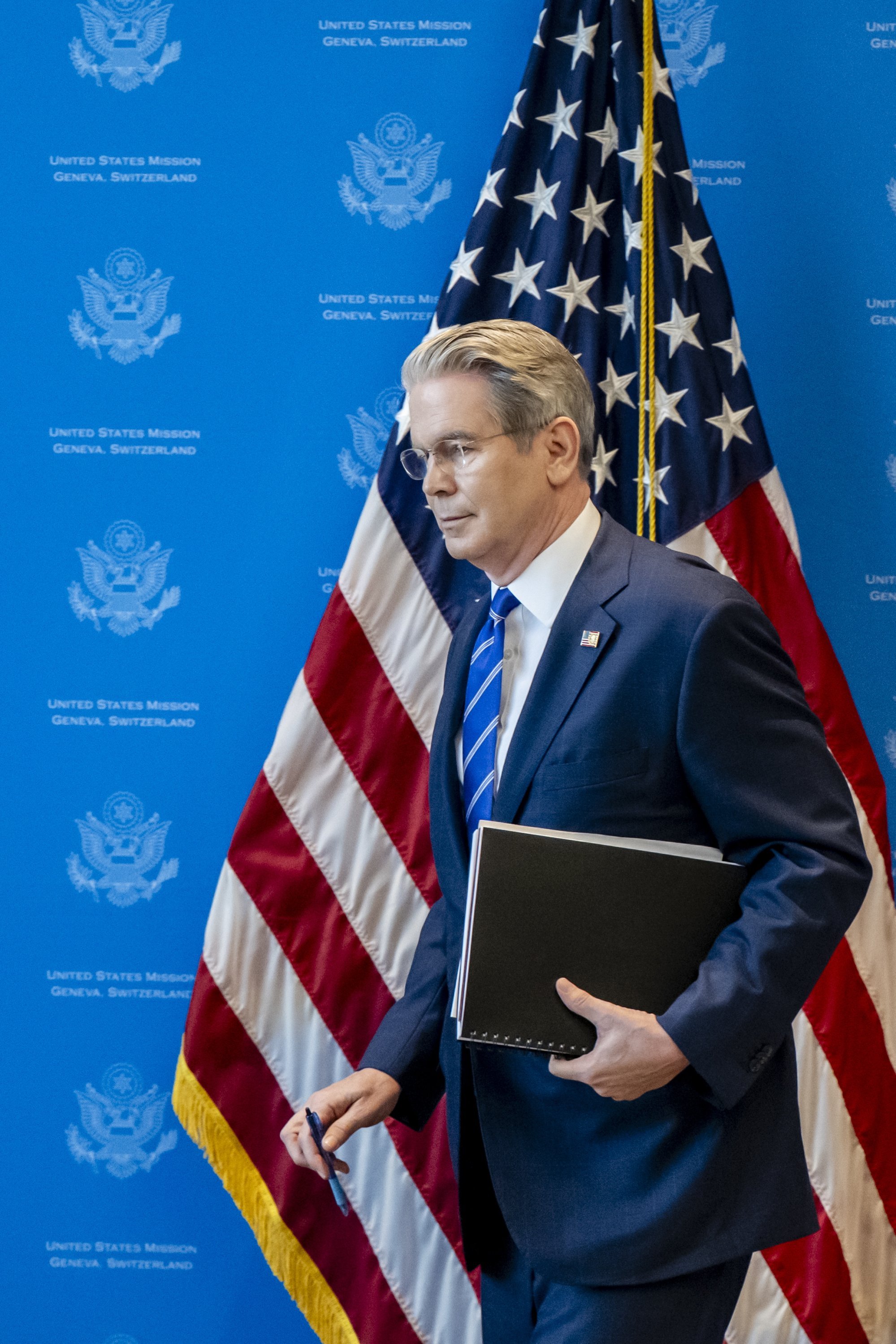- Dapatkan link
- X
- Aplikasi Lainnya
The U.S. Treasury claims that almost twenty companies helped arrange transportation for billions of dollars' worth of oil belonging to an Iranian military front organization.

The U.S. Treasury Department has enforced economic penalties on an extensive network comprising almost twenty businesses and shipping intermediaries. These entities were allegedly involved in assisting Iran with moving billions of dollars' worth of petroleum products into China.
The interconnected web of Hong Kong and mainland Chinese companies supposedly played a key part in masking Iranian crude oil as originating from different sources before channeling it into China.
The Treasury’s Office of Foreign Assets Control reported that this network assisted with deliveries destined for Iran's Armed Forces General Staff, which is the nation's leading military authority, along with its subsidiary entity known as Sepehr Energy.
Are you curious about the most significant issues and global trends? Find out here with SCMP Knowledge , our new platform of curated content with explainers, FAQs, analyses and infographics brought to you by our award-winning team.
"Today’s actions highlight our ongoing commitment to ramping up pressure on all facets of Iran's petroleum commerce, which the government utilizes to finance its harmful and disruptive operations,” stated Treasury Secretary Scott Bessent on Tuesday.
"The United States will continue targeting this primary source of revenue, so long as the regime continues its support for terrorism and proliferation of deadly weapons."

The proceeds from selling oil were used to finance the development of Iranian ballistic missiles and drones, as well as nuclear programs and assaults by the Houthi militants on vessels in the Red Sea, according to Tammy Bruce, a representative from the State Department. These funds also supported attacks carried out against ships in the Red Sea by the Houthi militia, the US Navy, and Israel.
The sanctions immobilized all assets within the United States linked to the specified individuals and organizations. Furthermore, enterprises that are at least fifty percent owned by these sanctioned parties are prohibited from participating in dealings with U.S. companies or utilizing the American financial system.
Several of the specified firms were registered in Hong Kong, including Xin Rui Ji Trad Co., Star Energy International Ltd., and Milen Trading Co. Ltd. According to the department, Sepehr was behind these entities and utilized them for brokering and receiving deliveries of Iranian oil sent to China.
The Treasury Department stated that firms originating from mainland China along with their international subsidiaries were involved in facilitating the oil shipments.
The department stated that CCIC Singapore PTE conducted Sepehr inspection activities during ship-to-ship transfers and possibly fabricated documentation to misrepresent Iranian oil as being sourced from different countries. The report also mentioned that its affiliated firm, Huangdao Inspection and Certification, offered comparable inspection services.
The treasury imposed sanctions on several shipping agencies involved in assisting with the berthing and unloading processes at Chinese ports, such as Qingdao Linkrich International Shipping Agency Co., which was reported to have facilitated the arrival of vessels chartered by Sepehr in China.
Additionally, Treasury identified several other Hong Kong-based companies, including Metaone Trading Ltd, South Sea Energy Ltd, Continental Sinoil Group Ltd, and Winso Trading Ltd, as well as the Singapore-based Oriental Apple Company PTE Ltd, as intermediaries between Sepehr Energy and Shandong's "teapot refineries" - small, independent oil processors in China.
Treasury contends the refineries bought discounted crude from sanctioned countries, including Iran.
The US has sanctioned at least three Chinese "teapot refineries" companies this year, before the mass sanctions on the network on Tuesday.
In response to the latest measure, Liu Pengyu, the Chinese embassy's spokesman, said later on Tuesday that China firmly opposed America's "abuse of illegal unilateral sanctions and 'long-arm jurisdiction'".
"The US should stop interfering with and undermining the normal economic and trade cooperation between China and Iran," he said. "China will take all necessary measures to resolutely safeguard the legitimate rights and interests of Chinese companies."
US President Donald Trump secured a US$600 billion investment commitment from Saudi Arabia, Iran's regional rival, shortly before the sanctions announced, the White House said. The deal with Riyadh involves a variety of sectors, from energy to artificial intelligence to the defence industry.
In 2023, Beijing facilitated a landmark peace agreement between Iran and Saudi Arabia.
Earlier this week, Iran and the United States completed their fourth round of talks regarding Iranian nuclear matters in Oman, yet they made no substantial headway.
On Tuesday in Riyadh, Trump stated that he aimed to strike a deal; however, if Tehran dismisses his offer of an olive branch, he will have no option except to impose severe maximalist pressures and reduce Iran’s oil exports to zero.
Additional reporting by Reuters
More Articles from SCMP
Final Destination: Bloodlines movie review – The sixth installment in the terrifying horror series remains as lethal as ever
'Severe Stress': How the Trade War Caught One of China’s Richest Provinces Unprepared
Hong Kong physician gets 9-month license suspension following sexual assault conviction
SCMP Top Picks: Budget Steed Essential for Valley Victory
The article initially appeared on the South China Morning Post (www.scmp.com), which is the premier source for news coverage of China and Asia.
Copyright © 2025. South China Morning Post Publishers Ltd. All rights reserved.
Komentar
Posting Komentar